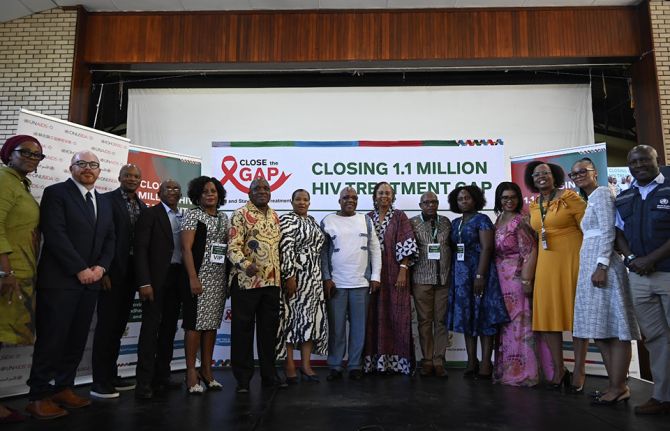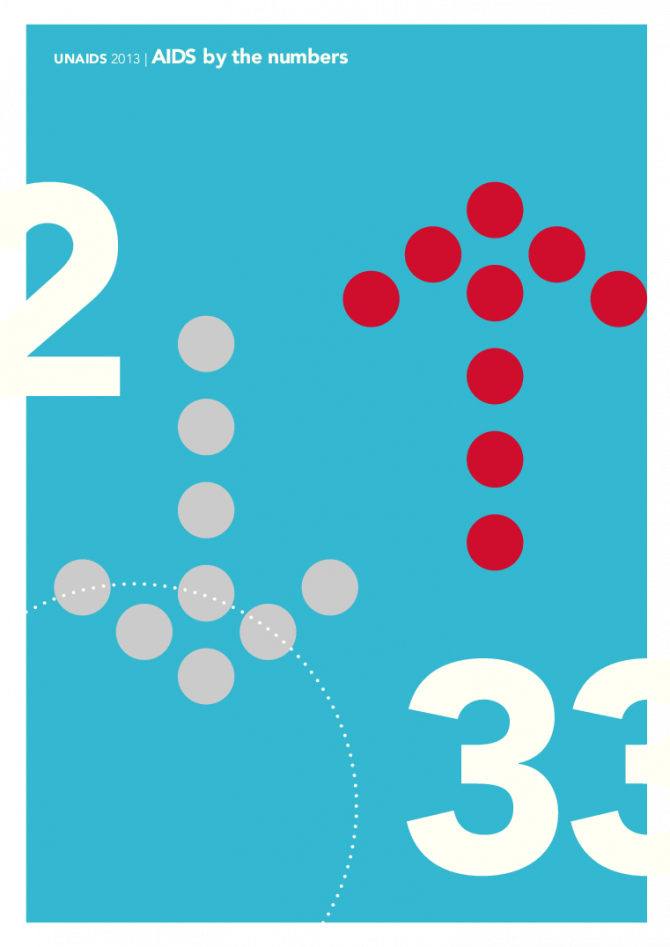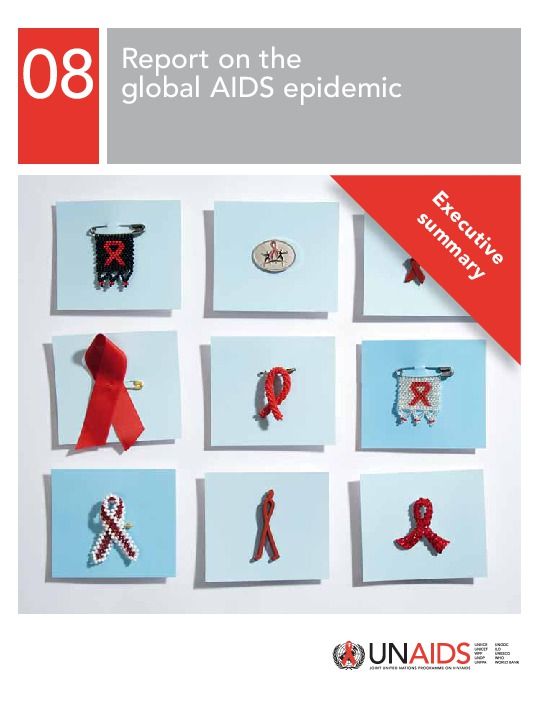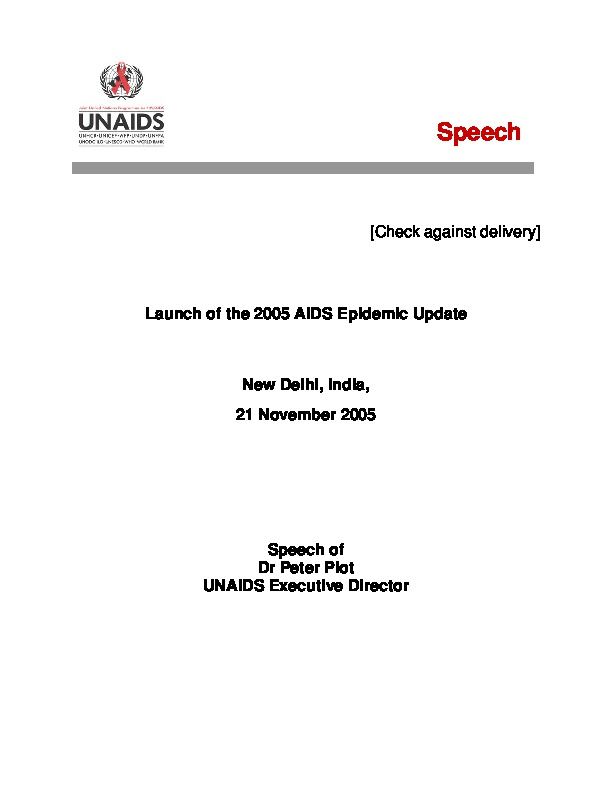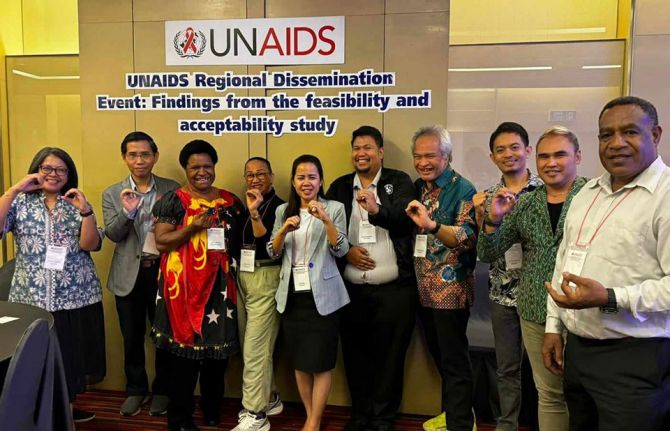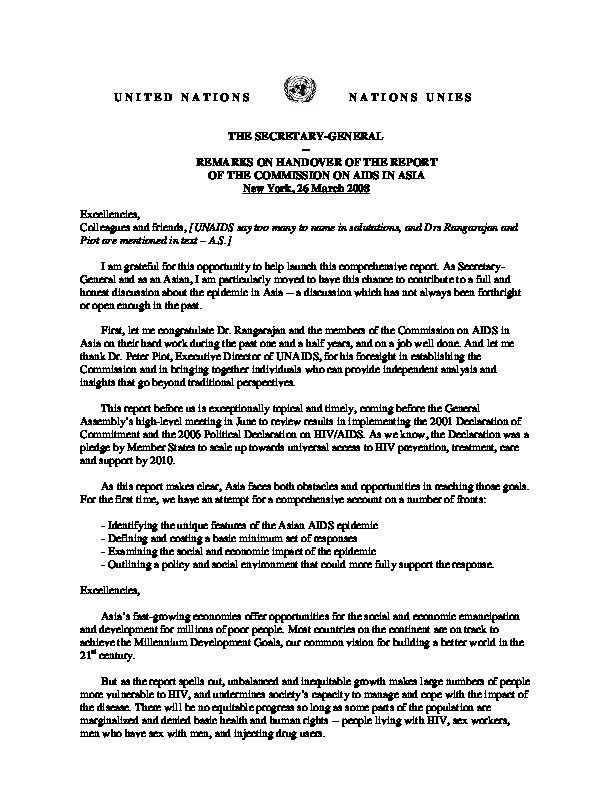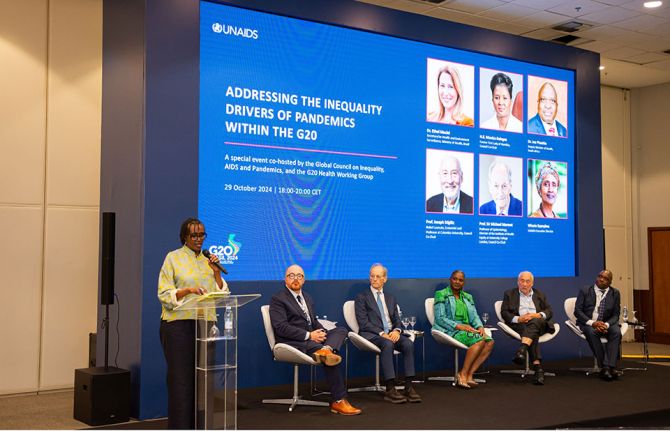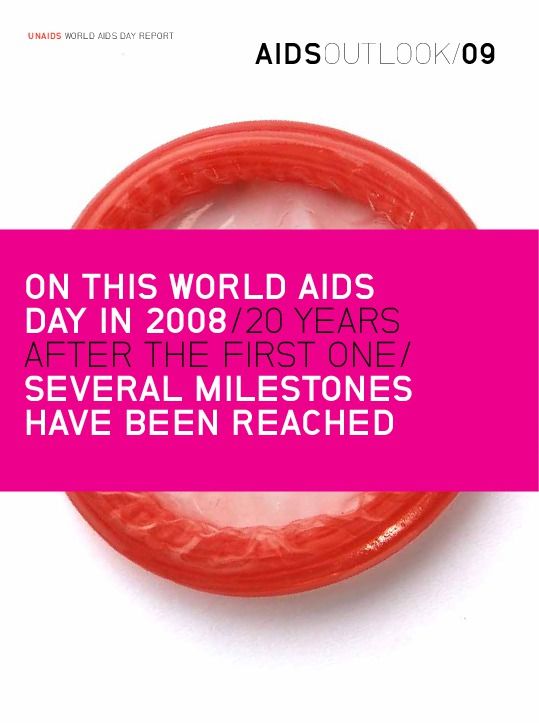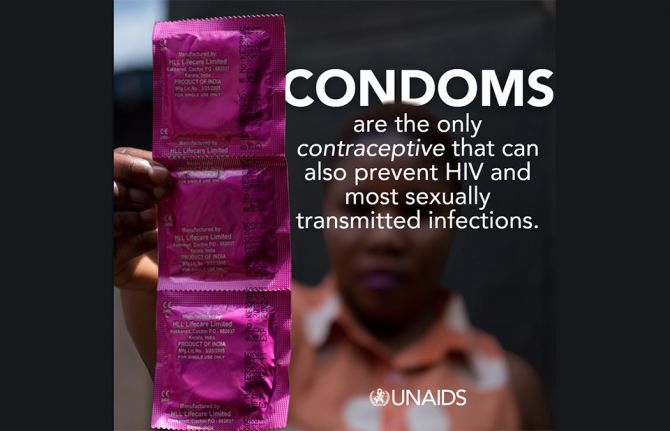Related
What the data tell us: Projections for the HIV epidemic in western and central Europe and North America in 2030
28 March 2025
What the data tell us: Projections for the HIV epidemic in the Middle East and North Africa in 2030
28 March 2025
What the data tell us: Projections for the HIV epidemic in eastern Europe and central Asia in 2030
28 March 2025
What the data tell us: Projections for the HIV epidemic in Asia and the Pacific in 2030
28 March 2025
What the data tell us: Projections for the HIV epidemic in western and central Africa in 2030
28 March 2025
Documents
HIV and Aging
01 November 2013
The supplement reveals that out of the global total of 35.3 million [32.2 million – 38.8 million] people living with HIV, an estimated 3.6 million [3.2 million–3.9 million] are people aged 50 years or older. The majority––2.9 million [2.6 million–3.1 million]—are in low-and middle-income countries where the percentage of adults living with HIV who are 50 years or older is now above 10%. The supplement also reveals that in high-income countries almost one-third of adults living with HIV are 50 years or older.
Related
 U=U can help end HIV stigma and discrimination. Here’s how
U=U can help end HIV stigma and discrimination. Here’s how

27 February 2025
Impact of community-led and community-based HIV service delivery beyond HIV: case studies from eastern and southern Africa
30 January 2025
 Lost and link: Indonesian initiative to find people living with HIV who stopped their treatment
Lost and link: Indonesian initiative to find people living with HIV who stopped their treatment

21 January 2025
UNAIDS data 2024
02 December 2024
 Global celebrities unite behind UNAIDS’ call for world leaders to “take the rights path to end AIDS”
Global celebrities unite behind UNAIDS’ call for world leaders to “take the rights path to end AIDS”

01 December 2024
Take the rights path to end AIDS — World AIDS Day report 2024
26 November 2024
Documents
AIDS by the numbers
20 November 2013
Latest estimates from the Joint United Nations Programme on HIV/AIDS (UNAIDS) show that the world continues to close in on the goal of ending the AIDS epidemic by stopping HIV transmission and halting AIDS-related deaths. Remarkable progress has been made over the last decade—yet significant challenges remain.
Related
UNAIDS data 2024
02 December 2024
Slide deck - 2024 global AIDS update
22 July 2024
Core epidemiology slides
22 July 2024
Documents
Executive summary of 2008 Report on the global AIDS epidemic
17 July 2008
The report documents considerable progress in many countries in addressing their national epidemics. A six fold increase in financing for HIV programmes in low- and middle-income countries 2001–2007 is beginning to bear fruit, as gains in lowering the number of AIDS deaths and preventing new infections are apparent in many countries. Progress remainsuneven, however, and the epidemic’s future is still uncertain, underscoring the need for intensified action to move towards universal access to HIV prevention, treatment, care and support.
Related
What the data tell us: Projections for the HIV epidemic in western and central Europe and North America in 2030
28 March 2025
What the data tell us: Projections for the HIV epidemic in the Middle East and North Africa in 2030
28 March 2025
What the data tell us: Projections for the HIV epidemic in eastern Europe and central Asia in 2030
28 March 2025
What the data tell us: Projections for the HIV epidemic in Asia and the Pacific in 2030
28 March 2025
What the data tell us: Projections for the HIV epidemic in western and central Africa in 2030
28 March 2025
Documents
UNAIDS 2011 World AIDS Day report
21 November 2011
A new report by the Joint United Nations Programme on HIV/AIDS (UNAIDS), released on 21 November, shows that 2011 was a game changing year for the AIDS response with unprecedented progress in science, political leadership and results. The report also shows that new HIV infections and AIDS-related deaths have fallen to the lowest levels since the peak of the epidemic.
Related
UNAIDS data 2024
02 December 2024
Slide deck - 2024 global AIDS update
22 July 2024
Core epidemiology slides
22 July 2024
Documents
Launch of the 2005 AIDS Epidemic Update, Speech by Peter Piot, UNAIDS Executive Director, New Delhi, India, 21 November 2005
21 November 2005
Related
What the data tell us: Projections for the HIV epidemic in Asia and the Pacific in 2030
28 March 2025
 Despite progress, HIV stigma and discrimination continue to bubble beneath the surface in Thailand
Despite progress, HIV stigma and discrimination continue to bubble beneath the surface in Thailand

24 March 2025
 Status of HIV Programmes in Indonesia
Status of HIV Programmes in Indonesia

24 February 2025
29th Ordinary General Assembly of the Organization of African First Ladies for Development
16 February 2025
 Lost and link: Indonesian initiative to find people living with HIV who stopped their treatment
Lost and link: Indonesian initiative to find people living with HIV who stopped their treatment

21 January 2025
55th meeting of the UNAIDS Programme Coordinating Board
10 December 2024
UNAIDS data 2024
02 December 2024
Documents
Overview of Epidemic and Response in Asia and the Pacific
21 August 2007
Distinguished guests, colleagues and friends, good morning. I thank the local organizing committee of the 8th ICAAP for this opportunity to stand before you once again and to look at how we are progressing after the Kobe ICAAP.Meeting two years after the Kobe Conference presents a good opportunity to take stock of the situation and to look ahead at the enormous challenges we are facing in the region in combating the AIDS epidemic.
Related
What the data tell us: Projections for the HIV epidemic in Asia and the Pacific in 2030
28 March 2025
 Despite progress, HIV stigma and discrimination continue to bubble beneath the surface in Thailand
Despite progress, HIV stigma and discrimination continue to bubble beneath the surface in Thailand

24 March 2025
 From violence to funding cuts, Asia Pacific women living with HIV face old and new challenges
From violence to funding cuts, Asia Pacific women living with HIV face old and new challenges

18 March 2025
 Status of HIV Programmes in Indonesia
Status of HIV Programmes in Indonesia

24 February 2025
29th Ordinary General Assembly of the Organization of African First Ladies for Development
16 February 2025
 Lost and link: Indonesian initiative to find people living with HIV who stopped their treatment
Lost and link: Indonesian initiative to find people living with HIV who stopped their treatment

21 January 2025
55th meeting of the UNAIDS Programme Coordinating Board
10 December 2024
Documents
Remarks on handover of the report of the comission on AIDS in Asia
28 March 2008
I am grateful for this opportunity to help launch this comprehensive report. As Secretary-General and as an Asian, I am particularly moved to have this chance to contribute to a full and honest discussion about the epidemic in Asia -- a discussion which has not always been forthright or open enough in the past.
Related
29th Ordinary General Assembly of the Organization of African First Ladies for Development
16 February 2025
 Zambian football star Racheal Kundananji named UNAIDS Goodwill Ambassador for Education Plus in Zambia
Zambian football star Racheal Kundananji named UNAIDS Goodwill Ambassador for Education Plus in Zambia

23 January 2025
55th meeting of the UNAIDS Programme Coordinating Board
10 December 2024
UNAIDS data 2024
02 December 2024
20th Indian Ocean Colloquium on HIV/AIDS
22 October 2024
University of Pompeu Fabra
17 October 2024
Related
What the data tell us: Projections for the HIV epidemic in western and central Europe and North America in 2030
28 March 2025
What the data tell us: Projections for the HIV epidemic in the Middle East and North Africa in 2030
28 March 2025
What the data tell us: Projections for the HIV epidemic in eastern Europe and central Asia in 2030
28 March 2025
What the data tell us: Projections for the HIV epidemic in Asia and the Pacific in 2030
28 March 2025
What the data tell us: Projections for the HIV epidemic in western and central Africa in 2030
28 March 2025
Related
What the data tell us: Projections for the HIV epidemic in western and central Europe and North America in 2030
28 March 2025
What the data tell us: Projections for the HIV epidemic in the Middle East and North Africa in 2030
28 March 2025
What the data tell us: Projections for the HIV epidemic in eastern Europe and central Asia in 2030
28 March 2025
What the data tell us: Projections for the HIV epidemic in Asia and the Pacific in 2030
28 March 2025
What the data tell us: Projections for the HIV epidemic in western and central Africa in 2030
28 March 2025



